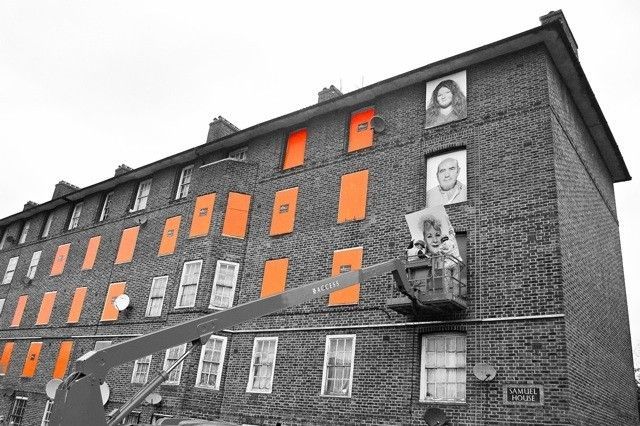Considerate Urbanism: the revolution will be emotional.
The Considerate Urbanist Blog #2 14th December 2022
Considerate Urbanism is an alternative philosophy and way of thinking about cities and urban life; to make this is a kinder experience but also a kinder future for our people and planet. We know that we urgently need to adapt and transition to a different model of living, existing, and producing on our planet. A more considerate form of urbanism recognises cities are more than bricks and mortar, they are an experience, a philosophy, a mode of production and a lifestyle. And this can either be a positive for you, or it can hold your health and life chances back in ways that fundamentally make the city nasty, brutish, and short.
I’m interested in how we can create better lived experiences and everyday life in cities for everyone. When I think about cities, I see them as being social networks - and streets, spaces, parks, buildings are social media. They operate through behaviours, interactions, and relationships. To understand how a place works we need to understand the networks and flows within it, and the activities, behaviours, decisions, actions that govern them.
We’ve had the physical city; growing from a need to be close to resources, easily defendable by its physical setting, catering for basic survival and human need. We’ve had the economic city; being spaces of mass capital accumulation and growing upwards exponentially to signal power and wealth. Urban space becomes a commodity to be traded and coveted for its value and abstract transformation into capital. I am convinced that the future of the city and our understanding of its growth, potential, and processes of change, will be governed by more overtly humanised and social drivers. I think we are moving into the age of the social city.
This age of the social city comes at a time of major flux. Climate change is showing us that our lifestyles and systems are fundamentally unsustainable. Economic disparity and persistent poverty is showing us that our economic system is unjust and inequitable. Social Justice movements show us that people still feel unseen, unheard, and unvalued. The seeming emergence of Industrial Revolution 4.0, Web 3.0, Blockchain 2.0 has profound implications for prevailing social and economic models, and means citizens are gaining agency over the macro things that have governed us before; access to work, access to assets, access to currency.
It feels like this transition to a new way of living, working, and doing business will necessitate a dismantling of the systems, structures and processes we had before. And we need whatever comes next to enable the massive changes needed for us to adapt successfully to a more socially, economically, and environmentally resilient world. Like any transition it could be difficult and messy, exhilarating and emancipating, uncomfortable for some and not others. As we navigate this new and emerging world, now more than ever, we need to be kind and considerate to each other.
Because what will hold us together will be social glue: our relationships, our shared affinity, our common ground, mutual trust, shared aspirations, empathy and care for ourselves and our communities. A knowing and a feeling that we are all going to face change to some extent; so our fate is a shared one.
And because our survival rests on our capacity to live successfully in a community of other humans. Millions of years ago, that meant life and death. Today the challenge facing us is how we can, all muti-millions of us, live together day to day – on a micro level in our neighbourhoods, at school, in work – and on a macro level, as citizens, as shared cultures, as nations, as a civilisation.
What comes with this transition though, is an explosion of new ideas, ways of thinking, ways of engaging, ways of living and organising society and our economy, ways of learning and doing that will turn our existing systems on their head. This explosion needs to be driven by a key question – how will humans live on this planet next? And a profound shift in mindset - how can we live on this planet better together? As more of us will live out our lives in cities; cities will become the thing most of us will share and have in common. City life. This means we need to make cities the solution and not the problem. Use cities as the fundamental basis for creating that new baseline for living.
So for me, the key battle for our adaptation is not technology or funding – it is a battle for our emotions. We can have solutions if we want them. We can have funding if we want it. We can change the world if we want it. But we have to want it. And we need to collaborate, share and be more considerate of how people will be affected and impacted. This means setting aside individualism, excess, materialism, short-termism, selfishness, and greed, for more concern and care for each other as a global community.
I see more and more of this mindset emerging in how we talk about finance, how we approach design, how we shape services, how we think about transport, how we engage people in our decision-making, and how we grow our organisations and leaders. There is a humanising emotional revolution going on. And the time for the Social City is now.

